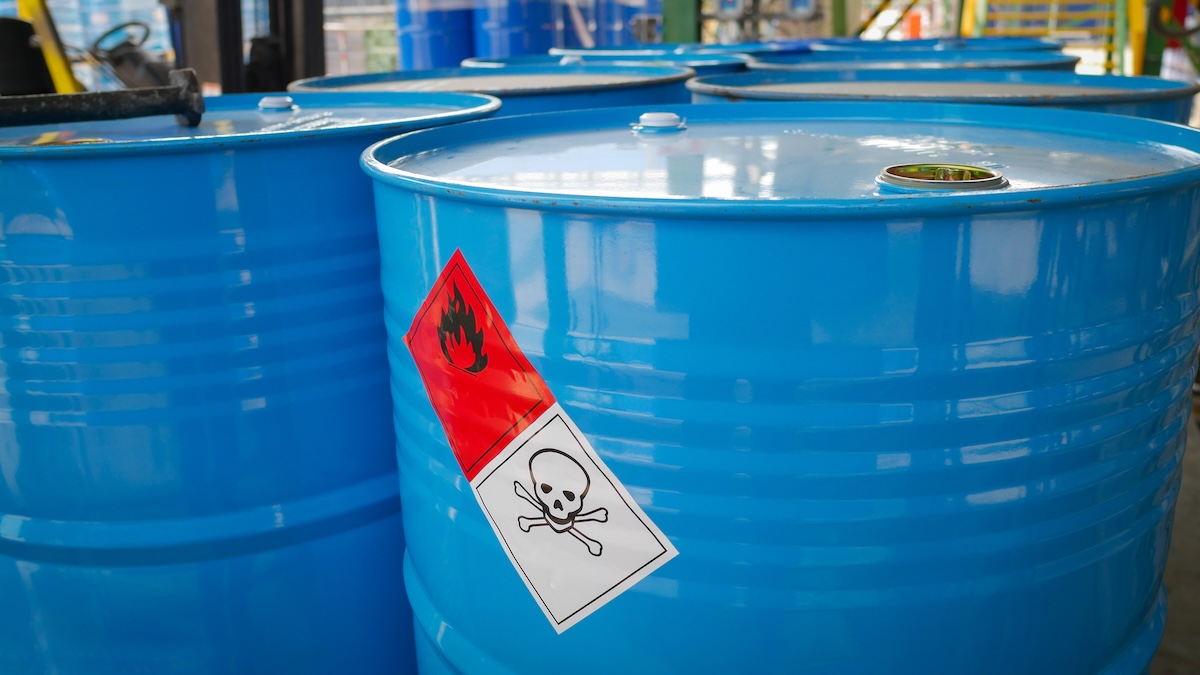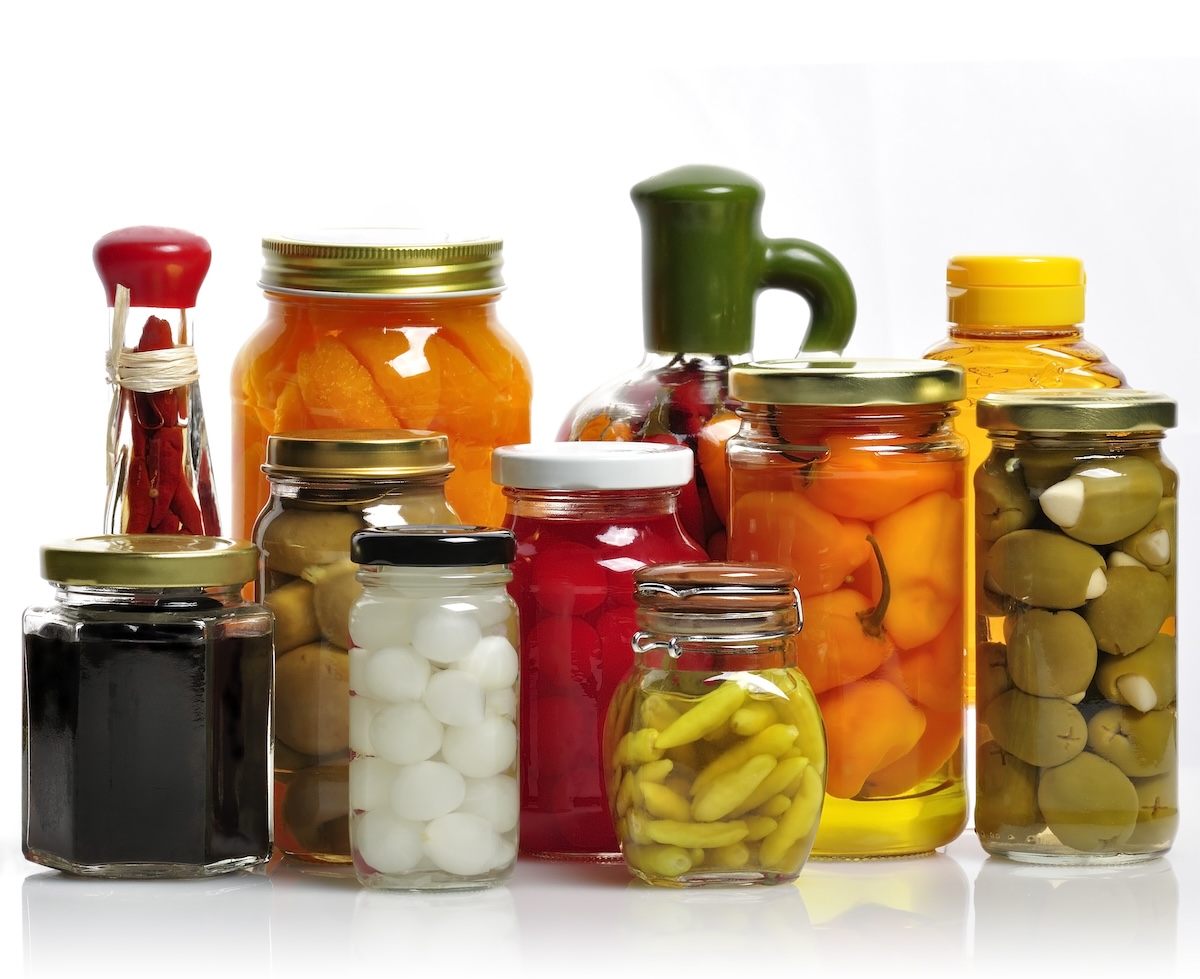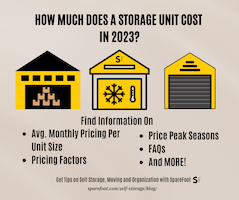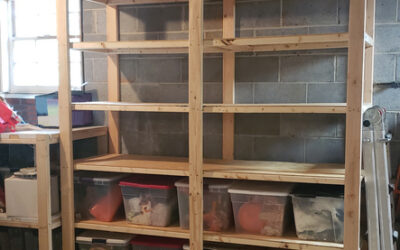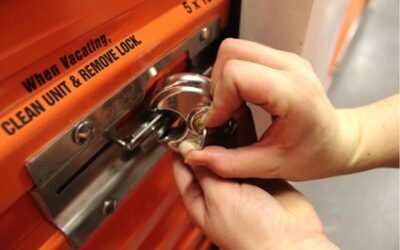Wondering what to do with that extra set of golf clubs, or if your attic treasures could take a little vacation in a storage unit? Our homes tend to feel a bit too cozy with all the things we accumulate, and a storage unit seems like a savvy solution. But wait — you can’t just box up everything and lock it away! Self-storage units will happily accommodate spare furniture or off-season clothes, but mention storing your old chemistry set and you might just get a polite, yet firm, “no thanks.”
These handy facilities, often our go-to for decluttering, come with their own set of rules — and for good reasons. While they’re fantastic for keeping your grandmother’s china or your collection of vintage records, there are some things they simply aren’t on board with. And it’s not always obvious what’s off the table.
Hazardous Items You Can’t Keep in a Self-Storage Unit
Knowing what’s a storage “yes” and what’s a definite “no” can save you from headaches and heartaches. If you are ever in doubt, just remember to contact the facility and ask. Your self-storage lease should contain a list of any items that are explicitly banned. The list of items not to put in storage kicks off with the obvious culprit: substances and objects that pose serious safety issues. For instance, storing flammable items like gasoline can turn a small incident in a storage unit into a major facility-wide disaster.
Similarly, chemicals and pesticides, although seemingly harmless in their containers, can become dangerous if they leak or mix. Even something as innocuous as a damp piece of clothing can be the start of a mold outbreak that not only damages your belongings but also impacts nearby storage units.
Let’s see which items you can never put in a storage unit so that you can decide early on which items are better left at home or handled differently.
Hazardous and Radioactive Materials
Do not store materials that pose health, safety or environmental risks, such as acid, compressed gas or radioactive substances.
- Reason: Risk of spills, contamination and legal liabilities.
Flammable Items
Do not store substances that easily catch fire, such as gasoline, grease, paint or kerosene.
- Reason: Fire risk leading to property damage and safety hazards.
Wet Items
Do not store items containing or soaked in liquid, such as wet clothing or damp furniture.
Reason: Mold and mildew growth, property damage.
Explosives and Ammunition
Do not store any materials that are explosive or used as ammunition, such as fireworks, bullets or explosive compounds.
- Reason: Extreme danger of explosion, safety risks, legal issues.
Chemicals and Pesticides
Do not store chemicals and substances used for industrial, agricultural or household purposes, such as industrial solvents, herbicides or insecticides.
- Reason: Potential for leaks, toxic fumes, environmental hazards.
Medical Waste
Do not store waste materials generated from medical procedures or practices, such as used syringes, contaminated bandages or biomedical waste.
- Reason: Health hazards, strict disposal regulations.
A Collection of Batteries
Last but not least, do not store large amounts of batteries, especially lithium-ion. They can pose fire risks and hazardous materials can leak out of them. If you want to store your car battery, make sure the unit is climate-controlled and the battery thoroughly cleaned.
Biological and Organic Materials You Can’t Keep in a Self-Storage Unit
Whether it’s food that could spoil or plants that need care and sunlight, these items can cause more problems than they’re worth in a storage setting. And while some items, like medicines and cosmetics, may not seem like a problem at first glance, these too can deteriorate over time.
For starters, biological and organic materials are often sensitive to fluctuations in temperature and humidity. Improper parameters make them decay, spoil or break down. The result? Anything from unpleasant odors to health hazards. Plus, they can attract pests — insects and rodents alike. That’s a big no-no in storage land.
Food
Do not store any food items, perishable or not. The restriction is not limited to meat, fish, dairy and the like, but canned goods too.
- Reason: Attracting pests, spoilage and odors.
Plants
Do not store potted plants or potting soil in a storage unit. Risks aside, a windowless room is not suitable for plants.
- Reason: Pest attraction, decay, maintenance issues.
Animals (Living or Dead)
Do not store any type of animal, whether alive or deceased. Properly stored taxidermy pieces should be fine.
- Reason: Cruelty, health hazards, legal issues.
Perishable Items
Do not store any items that deteriorate over time, such as most medicines and cosmetics.
- Reason: Spoilage, chemical breakdown.
- Note: If you represent a medical or pharmaceutical company, look into pharmaceutical storage options. Such units are climate-controlled, extra secure and most of them accept deliveries on your behalf.
Legally Sensitive and Valuable Items
From the tangible like money and valuables to the more intangible and yet profoundly sensitive items like human remains, the rules around these items are stringent for good reasons.
First, consider the legal ramifications. Storing items like unregistered vehicles, illegal goods or firearms can quickly escalate from a simple storage solution to a legal nightmare. Then there’s the question of security and safety. High-value items like cash, jewelry or antiques can turn a storage unit into a target for theft.
Ethical considerations play a huge role too, especially when dealing with items like human remains or parts. These sensitive items require handling with dignity and respect, something a storage unit simply cannot provide.
Humans (Alive or Dead)
First of all, living in a storage unit is not allowed. And, as weird as this may sound, we have to say it: Do not put people in a storage unit, whether alive, deceased or turned to ashes. Body parts are also forbidden, no matter how they are preserved.
- Reason: Legal, ethical and health reasons.
Money and Valuable Items
Do not store cash and items of high monetary or sentimental value, such as expensive jewelry or rare collectibles and antiques.
- Reason: Theft risk, difficulty in valuation and insurance.
Unregistered Vehicles
Do not store vehicles without proper registration and documentation, whether cars, boats, RVs or trailers. Besides Proof of car registration, car insurance and vehicle title, many car storage facilities will also require that the car be drivable.
- Reason: Legal issues.
Firearms
Do not store revolvers, shotguns, rifles or any type of firearms really, however well protected.
- Reason: Legal restrictions, safety concerns.
Illegal Items and Stolen Property
Do not store any items obtained or used illegally. Examples include but are not limited to illicit drugs, counterfeit goods (pirated DVDs, counterfeit currency) and any stolen items.
- Reason: Legal consequences, intellectual property infringement, ethical considerations.
Items that Are Often Frowned Upon
While facilities can be very clear about what not to store in a storage unit and outright ban a list of items, there’s a category of belongings that sits in a gray area. These items, ranging from delicate fur garments to scented products, may seem harmless at first glance, but they come with their own set of complications.
For instance, some require specific climate conditions and can suffer damage in the standard storage environment, so most storage facilities will prefer to not have to deal with them at all. It is always wise to ask beforehand.
Fur and Delicate Items
Avoid storing items that require special care and conditions, such as fur coats, leather goods or natural silk garments. Another delicate item not to put in storage without precautions: your wedding dress.
- Reason: Damage risk.
Scented Items
Do not store items with strong odors or fragrances, such as perfumes or scented candles.
- Reason: Attraction of pests, odor transfer to other items.
Tires
Do not store car tires, motorcycle tires or truck tires. While you can store a vehicle with its tires on, additional tires beyond those equipped are typically not allowed.
- Reason: Fire hazard, serious safety risk, high disposal costs if abandoned.
Now You Know What Not To Store in a Storage Unit
While storage units offer great solutions for decluttering and keeping your excess belongings, they do come with certain boundaries. Just like our homes, these spaces need to be safe, legal and well-maintained — free from hazards, legally questionable items and anything that could cause damage or attract unwanted guests.
As a rule of thumb, if you’re storing items like spare furniture, seasonal decorations or sporting equipment, you’re likely in the clear. But when it comes to things like hazardous materials, perishable food or valuable antiques, it’s best to double-check — each facility comes with its own set of rules and policies on what not to put in a storage unit on its premises.
